
Last year saw the release of two exciting new collections by lesser known Beat poets Bob Kaufman and Jack Micheline. Both writers were San Francisco fixtures whose poetry gave voice to the marginalized and downtrodden, whose actions and actors were of the street. Both poets were disdainful of commercial recognition and academic accolades resulting in their legacy being neglected over time.
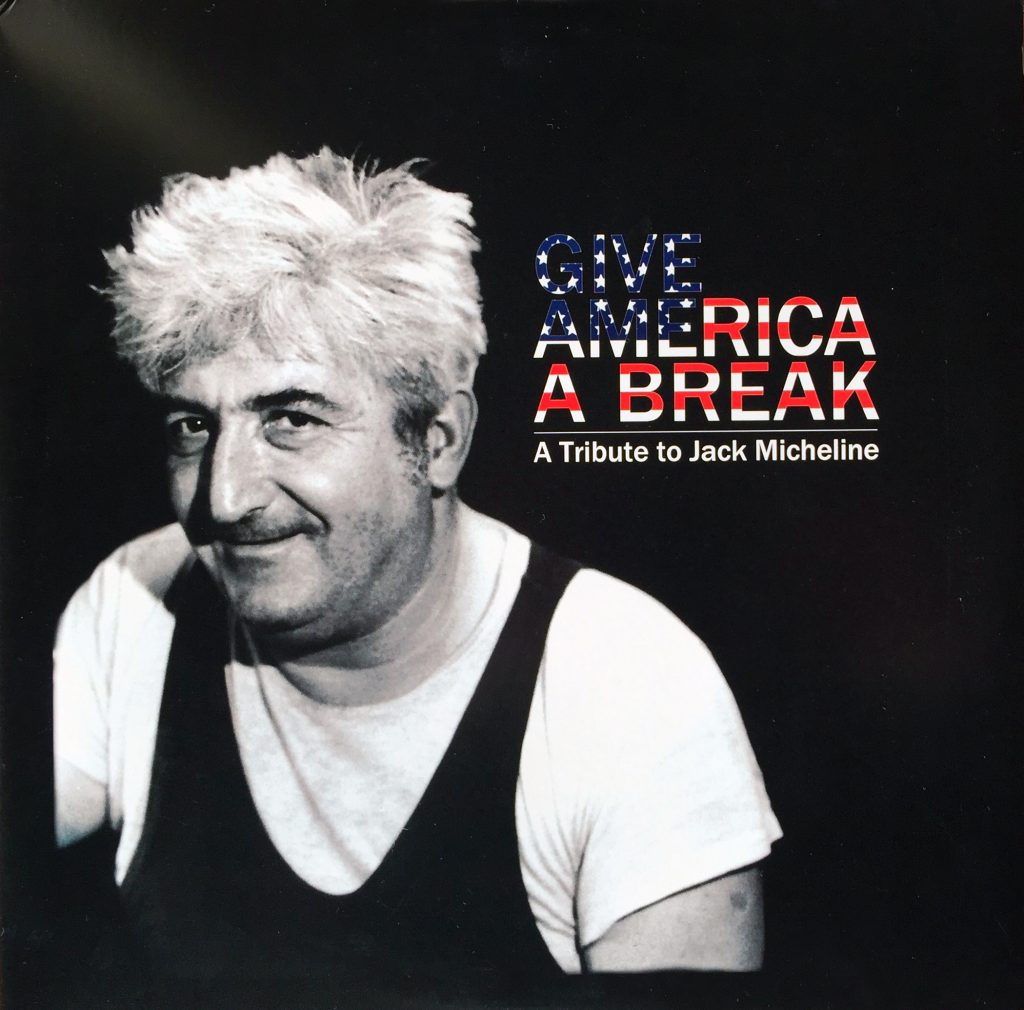
Like Norse, Jack Micheline was from New York (albeit the Bronx instead of Brooklyn), Jewish, and changed his last name when he became a poet. Micheline’s first collection of poems, Rivers of Red Wine, was published in 1957 by Troubadour Press with an introduction by Jack Kerouac. By the early 1960s, he settled in San Francisco which became his home base.
For the next three decades, he was known as one of the city’s celebrated street poets as well as a painter. Skinny Dynamite, a collection of his stories, was published in 1980 by A.D. Winan’s Second Coming Press. His archives, like Harold’s, are housed at UC Berkeley’s Bancroft Library.

Thanks to the diligent and dedicated work of my brother Tate Swindell, a new collection of previously unpublished poetry and ephemera was recently made available the Lithic Press.
Titled after one of Micheline’s unpublished poems, On Valencia Street, it’s a vibrant poems, fragments as well as poetry flyers, postcards and artwork.
Featuring an introduction by musician and poet Eric Mingus, this book serves as both a welcome introduction for readers new to Micheline’s work and a compendium of memorabilia for those familiar with his poetry.

In case you’re still on the fence about acquiring a copy, there are a number of excellent reviews recently published by renowned writers. At the San Francisco literary journal ZYZZYVA, Lindsey Pannor’s writes,
“Micheline’s aesthetic sense of San Francisco’s Mission District, and its streets which he so valued, has been faithfully and thoroughly catalogued here.”
“Though often regarded as one of the less nuanced poets of his time, it is Micheline’s straightforward style and eerie emulation of his historical moment that lifts his work off the page.”
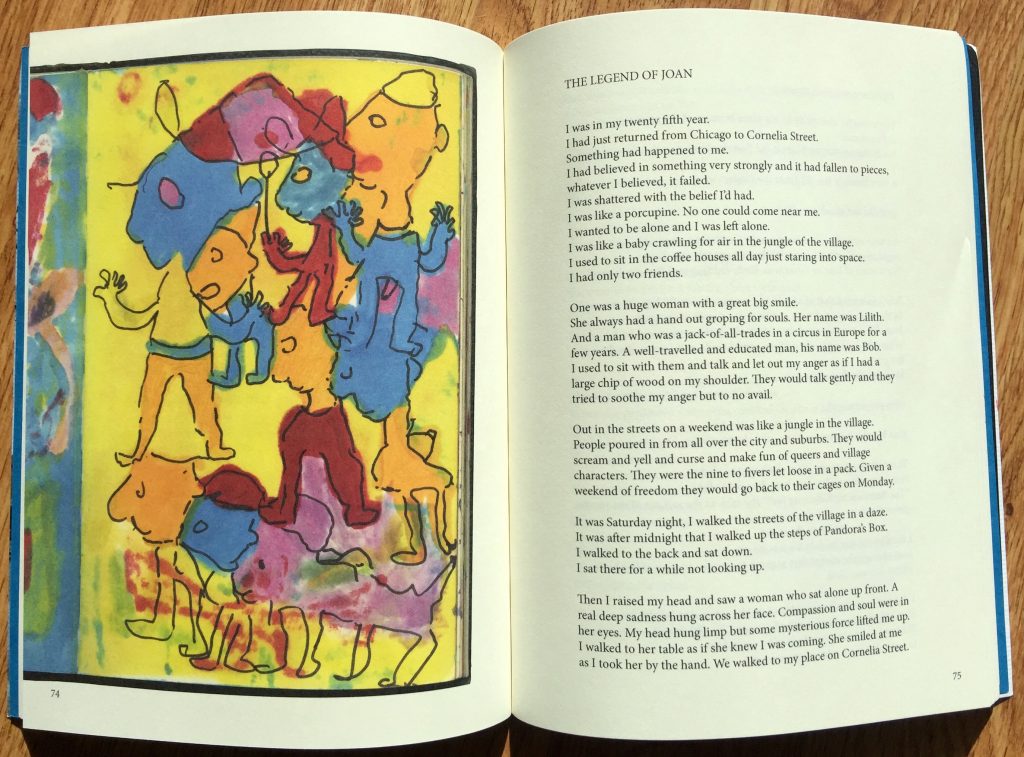
Another first-rate review comes courtesy of Surrealist poet and artist Valery Oisteanu in Rain Taxi Review of Books:
“Jack Micheline was a cursed vagabond who plied the outer fringes of society– a mad poet, street artist, free-spirited legend, and wildly creative talent with tragic-comedic accents. He lived with the courage to be himself: a half-drunk, half-drugged lumpen proletariat.”

In the most recent issue of the UK based Beat Scene, reviewer Bella Zundapp writes,
“The notes, posters, postcards, paintings all combine to give a scrapbook image of Jack Micheline’s life…it is a multi dimensional look of course, adding to our knowledge of the poet, letting us peek behind their screens, the creative act sort of revealed. More books should be presented this way.”
Born of mixed race parentage, Bob Kaufman was born in New Orleans. At the age of eighteen, he begins sailing the seas as a merchant seaman throughout the 1940s. By the late ’50s, Kaufman makes San Francisco his permanent home where he becomes a key participant in the North Beach poetry renaissance.
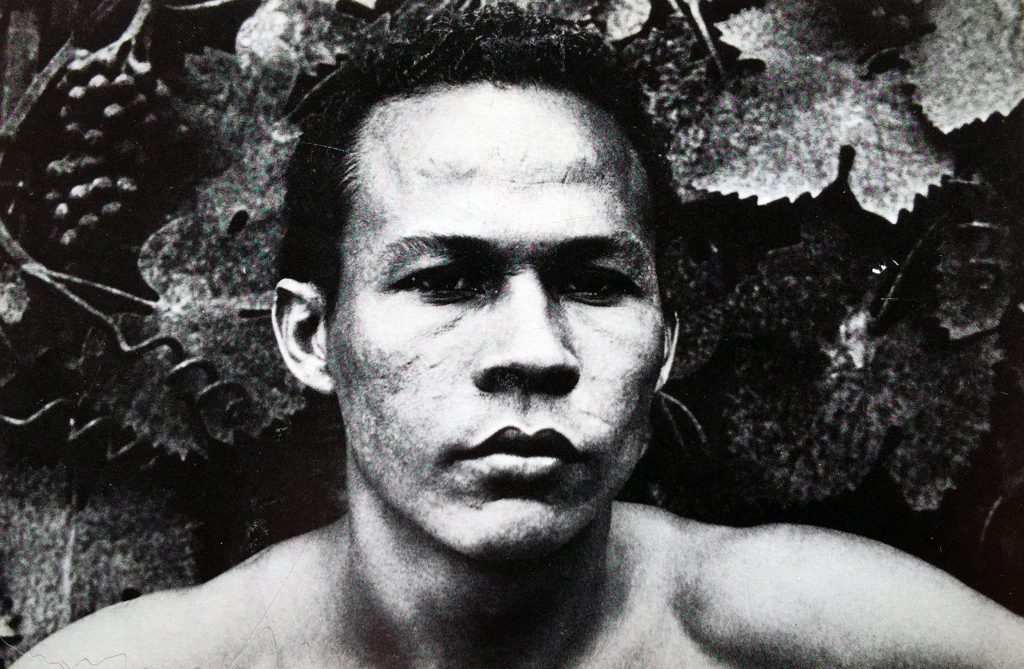
Not only is Kaufman’s work published by New Directions and City Lights Press, he also becomes involved with Beatitude magazine of which he is co-founder and co-editor along with John Kelly and William Margolis. Kaufman’s poetry often contained elements of surrealism, jazz and African diaspora. He infamously took a decade long vow of silence following Kennedy’s assassination.
Subjected to harassment and beatings by the San Francisco police, Kaufman was repeatedly incarcerated during the late 1950s. It was through the dedicated care of his supportive partner Eileen that much of his later poetry survives as Kaufman wasn’t concerned with recording his work on paper.

Published by City Lights Press, Collected Poems of Bob Kaufman features for the first time a comprehensive chronology of Kaufman’s life along with an extensive section of previously unpublished poems.
Both of these are results of the diligent and dedicated work of archivist Tate Swindell, who co-edited the book with Raymond Foye and Neeli Cherkovski.
San Francisco Chronicle recently featured two pieces of Bob Kaufman and his new publication. The first article by Dense Sullivan features from San Francisco poets such as Alejandro Murguía, Kim Shuck and devorah major, who composed the foreword to the Collected Poems. Sullivan writes of Kaufman’s work,
“The body of work is small but voluminous in intensity, spirit and soul, with a lineage that runs from Charles Baudelaire to Charles Mingus. Kaufman — with his commitment to the art, his surreal eye on the urban experience and beyond it, and his jazz timing — brings San Francisco to life.”

The Chronicle’s perceptive review by James Sullivan catches Kaufman’s poetry in its contemporary as well as current relevance:
Sometimes identified as an exemplar of Afro-Surrealism, Kaufman considered himself a jazz poet, rooted as he was in a time and place — the midcentury American metropolis — when hard bop was part of the atmosphere.
But Kaufman’s poems are also much more than fusty Beat Generation time capsules. They’re cries of fury, or religious irony. Some are absurdist comedy routines…These “Collected Poems,” long overdue, assure us that a little Bob Kaufman, like his beloved Charlie Parker, will echo in the atmosphere.
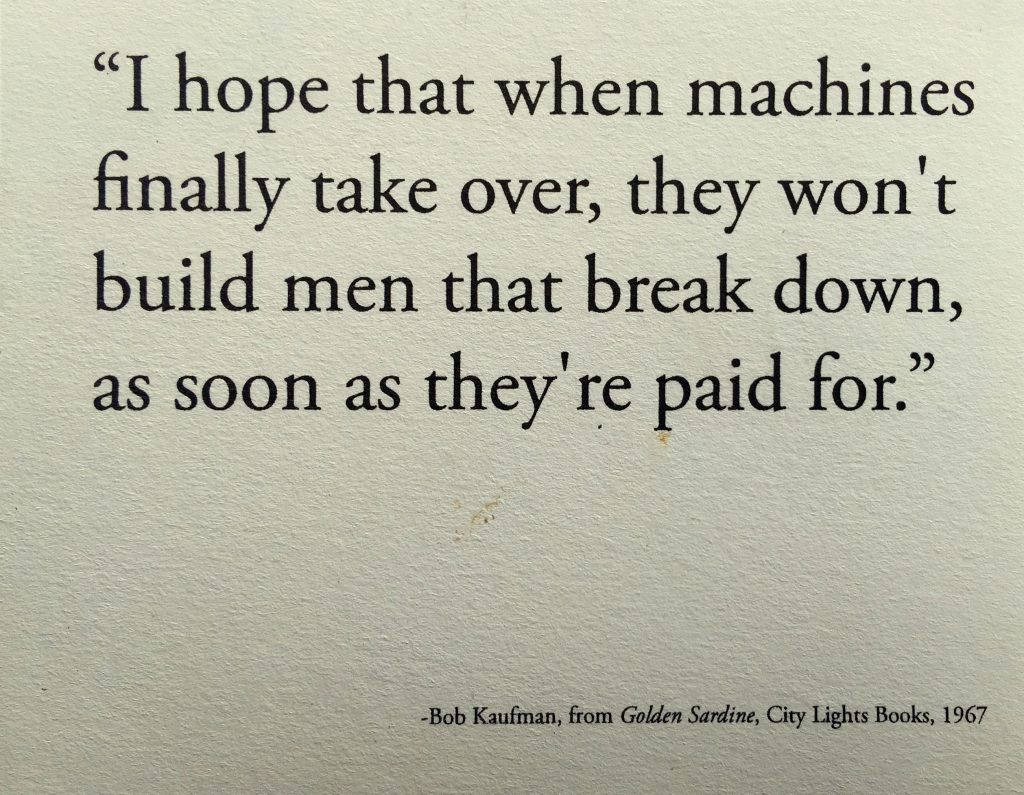
The two best reviews come from writers who were themselves participants in the counter-culture. Jonah Raskin has written books on Allen Ginsberg and Abbie Hoffman. In the radical muckraking magazine Counterpunch, Raskin looks are Kaufman’s writing in contrast to Beat celebrities Jack Kerouac and Allen Ginsberg.
“Unlike Kaufman’s surrealistic, Dadaesque universe, Kerouac’s parallel universe isn’t populated by zombies. Nor is it infused by the surrealist aesthetic. Kerouac was closer to Joyce and Proust than to Rimbaud, Baudelaire and the French symbolists.”
“…Ginsberg was rarely as enraged as Kaufman was. Ginsberg’s poem, “America,” ends, “I’m putting my queer shoulder to the wheel.” Kaufman was far more alienated from American life than Ginsberg or Kerouac. A century after the end of the American Civil War, it still rankled him.”

Poet Marc Olmsted, also filmmaker and musician, was an intimate confidant of Allen Ginsberg from the early 1970s until the elder poet’s death in 1997. Don’t Hesitate, his collection of memoir and correspondence of that relationship, was published by Beatdom Books and remains an essential document of Ginsberg’s poetic practice. Writing in the arts publication Sensitive Skin, Olmsted’s review encompasses Kaufman’s connections with Afrosurrealism and Buddhism.
Kaufman, a divine madman, was a longtime fixture of the San Francisco North Beach scene until his death in 1986. A casualty of police beatings and electroshock, it was very hard to guess just what he understood or was oblivious to, only that this was a drinking, drugging man in pain who wore his crown of thorns with dignity and had the complete respect of his more famous peers…Since Bob’s North Beach presence by 1974 had a distinct derelict madness, even in appreciating his genius it was hard to see how well-read he was, as these collected poems clearly show.
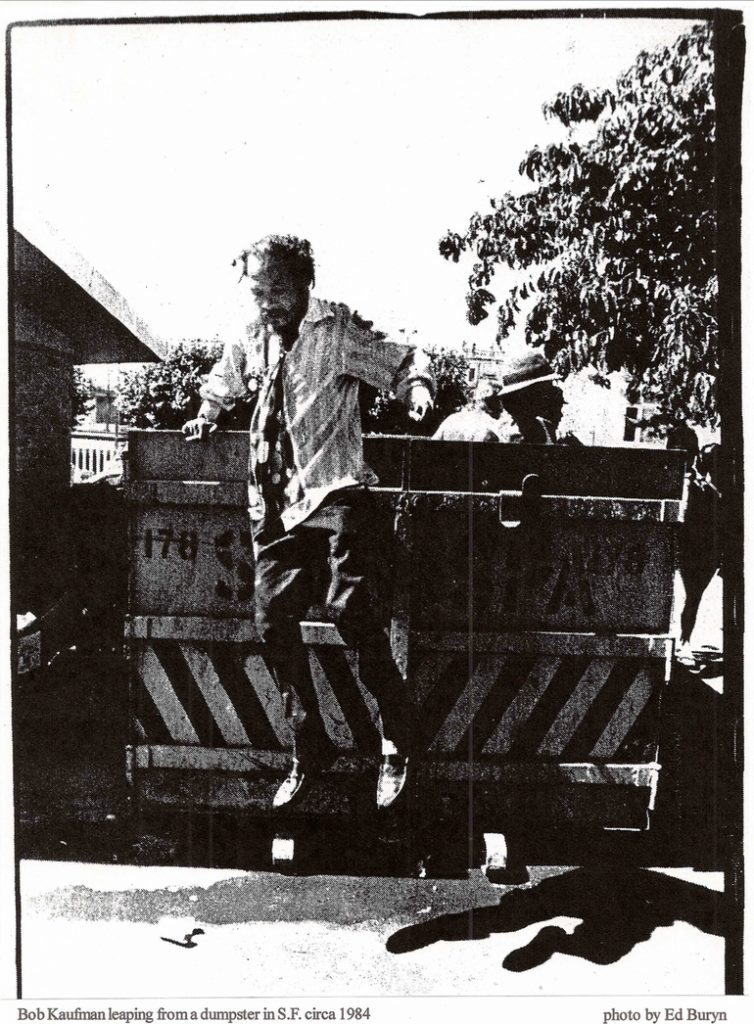
Through his friendship with Ginsberg, Olmsted became Buddhist. From that perspective, he offers appreciation of a number of Kaufman’s later poems influenced by Buddhism.
Buddhism appeared in his work enough for him to be anthologized in at least one Buddhist poetry collection, but Kaufman was hardly a conventional devotee. Whether he had just gleaned some insights from Zen literature or actually had some realization was hard to say, though at the same time as the spreading of his ashes in the San Francisco Bay, a rainbow appeared. That is known as “auspicious coincidence.”
For the dedicated readers who have made it this far, I’d like to circle back to Harold Norse’s connection to Kaufman and Micheline. Upon settling in San Francisco in 1971, Norse was in contact with both poets, sharing space at coffee shops, soirees and poetry readings.

Much of this activity centered around Alix Geluardi was a friend and patron of many poets and artists of North Beach as they gathered at her home at 185 Marina Boulevard whose street address became the title for the influential anthology 185 Geluardi published in 1973.
Norse dedicated a number of poems to Geluardi, among them his great poem “We Do Not Speak of Love.” The poem “North Beach” evocatively captures the spirit of the scene including Bob and his wife Eileen, who was also a good friend of Norse, along with Geluardi.
North Beach
For Alix Geluardi
in the Coffee Gallery Bob Kaufman sings Summertime
shakes my hand asking What do you see when you look at George
Washington?
I say The American Revolution the big breasts of a hermaphrodite
The White Man is God laughs Bob as he dances drunk
clutching a battered anthology of lonely North Beach poetry
raw from the burning ghats of bars and human wrecks
Salvaged from speed and junk and booze and
one-night stands
the tape deck plays soap opera music to our tragic script
out of it we make poetry
like sudden life
like the shock of light
the drunken sound from a motley crew
Linda Lovely down Grant Avenue
Eileen in shawls and dresses of colored threads
threads of the beat beauty of peyote
in the flow of pills and weed in Blabbermouth night
I have seen 20 barechested drummers
getting stoned on rooftops says Eileen
chronicler of obsessive visions
Would you wear my eyes? asks Bob
they broke down each other’s doors
hocked typewriters and record players
lied, screamed, jumped from windows
died and fell in love
those poets and painters you hung on Marina walls
and visited in prison
in parks waterfronts bars cheap hotels
an ocean of missing persons
departed poets leaving no address
orchestrating distances
in temporary shelters
San Francisco, 1973
Micheline read with Norse at a number of San Francisco poetry readings in the 1970s and 1980s. Both were habitués of the city’s Mission District and could often be seen on Valencia Street at the Abandoned Planet Bookstore or across the corner on 16th Street at Adobe Books. Norse, of course, lived around the corner at 157 Albion Street.
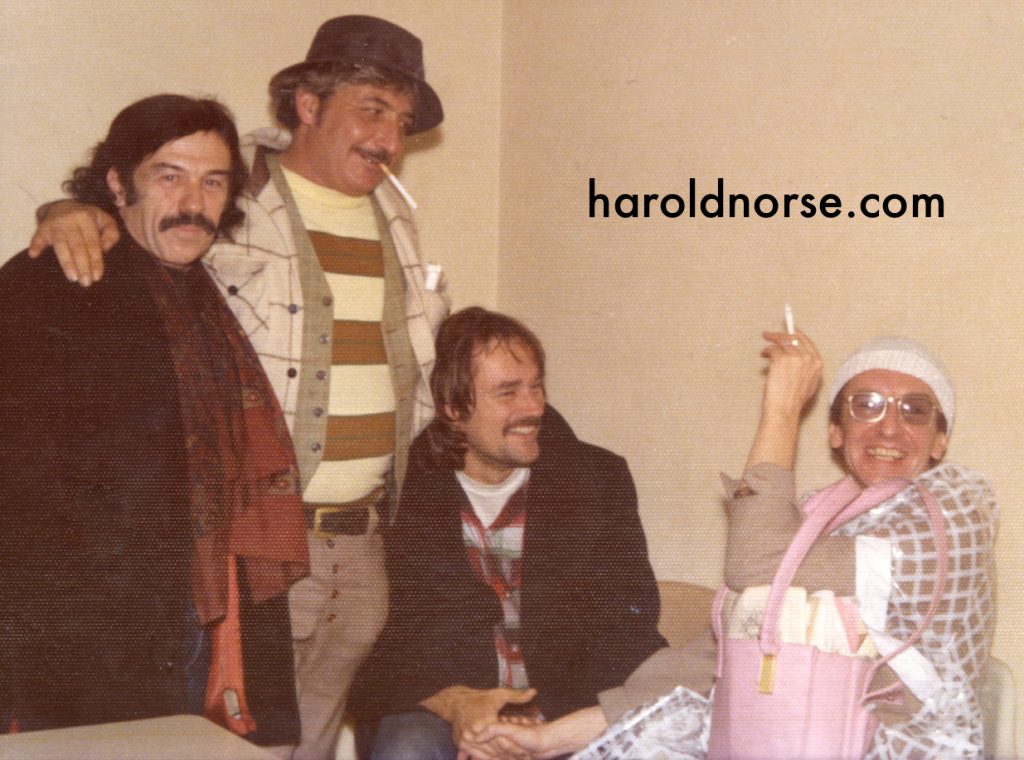
Though a minor poem, “All American Poets Are In Prison” is a collaboration between Norse and Micheline published in the influential 185 Anthology by Geluardi. The poem’s pronounced political polemic and repeated use of Fuck are earmarks of Micheline’s verse as well as the time it was written– the apex of the counter culture’s conflagrations. Though the line “I’m sick of America let’s leave it out of this poem” echoes sentiments expressed in one of Norse’s most well known poems “I’m Not a Man.”
All American Poets Are In Prison
Written by Harold Norse and Jack Micheline at 185 Marina Blvd., San Francisco
Yesterday
I sent a secret letter
to a Russian poet in prison
by carrier pigeon
Guilty of publishing
a mimeographed magazine
of young Russian poets
who said fuck you
to the establishment
In American such a silent murder
The pigs of commerce
want to control your mind
the cash register joins every cause
Nor do they want
the fire of the soul
Fuck truth they say
over the gray ashes of America’s living dead
Thank God for my mother’s Rumanian heart
my grandfather carrying stones to keep warm
my father jerking off the iceman in the Bronx
Thank God for my father’s Russian Hard-on
I’m sick of America let’s leave it out of this poem
What has American done that I should notice her
Notice the girl peeing her pants next to me in the 6th grade
and the Jewish teach with the self-conscious eyeglasses
weeping tears of borsch for the labor movement
and Father Coughlin blowing Joe Louis in his dreams
Fuck America give it to France
I got to go to the next course
Rotten lettuce in the icebox
Spread the word like butter
we’re sending our poems to the Chinese laundry for lichee nuts
The Grocer’s daughter poor nymphomaniac
with legs like lox and lust for cock
she was a real intellectual with 194 I.Q,
hustling sailors on Times Square
O silent Russian poet in prison
All American poets are in prison
Jails of the soul
Blocks of the brain
Streets without deliverance
Murder in their shoes
Deceived by rotting molars
O instinct where is the ash tray
Old urinals on the Russian Front
The beer is no good
The printer’s ink sucks on the page
O Comrade in Russian tea rooms
They have killed my pigeon
My brother
August 2, 1969
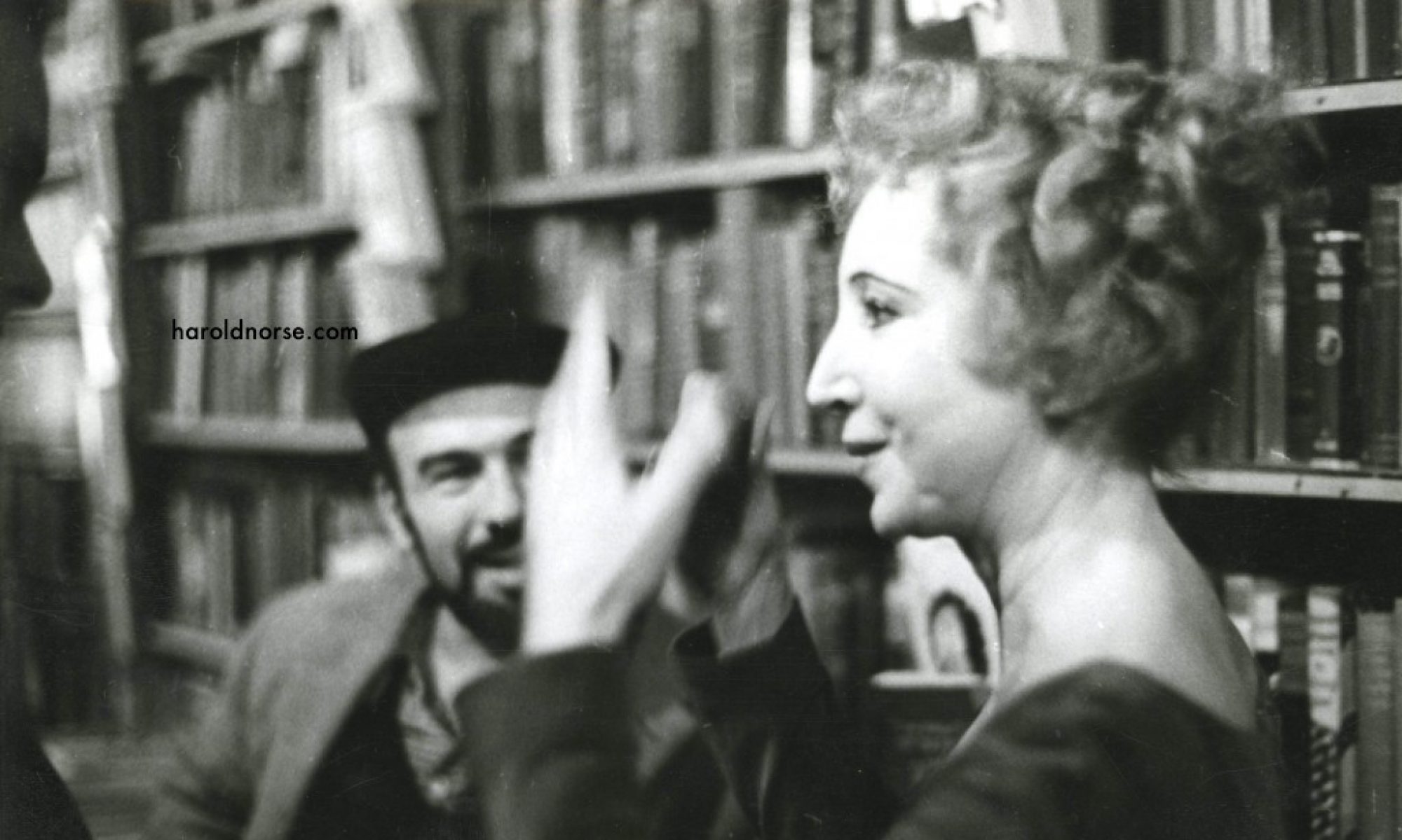
 The organization’s President,
The organization’s President, 
 Harris and Field are organizing this year’s EBSN conference to held
Harris and Field are organizing this year’s EBSN conference to held 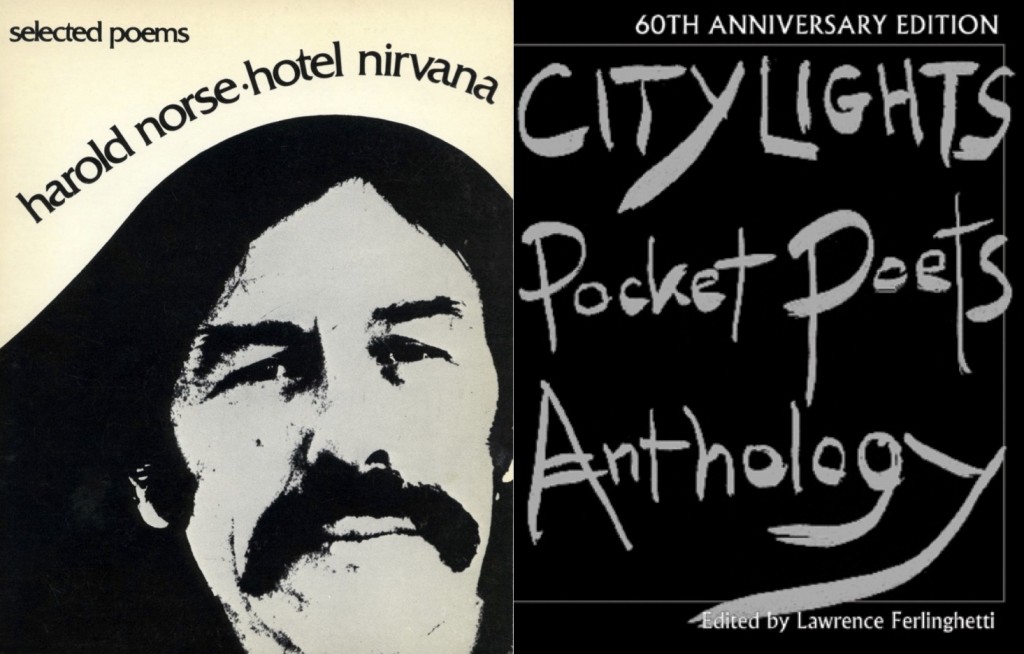

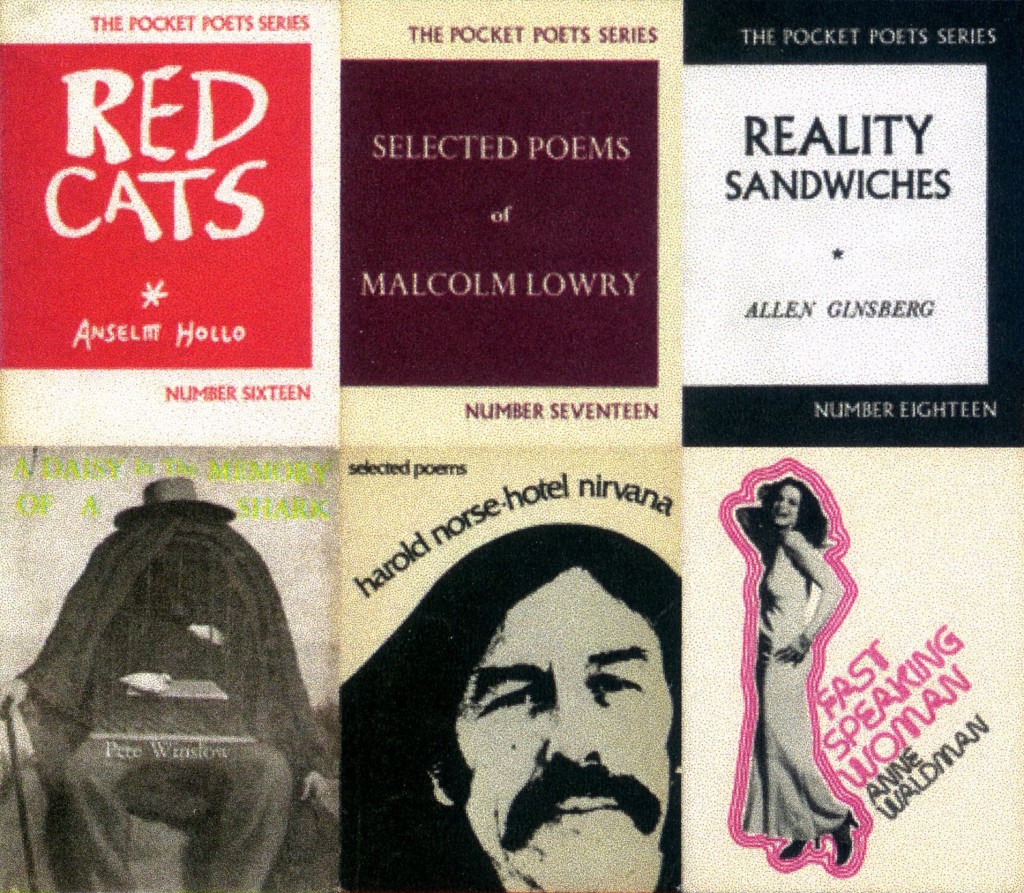
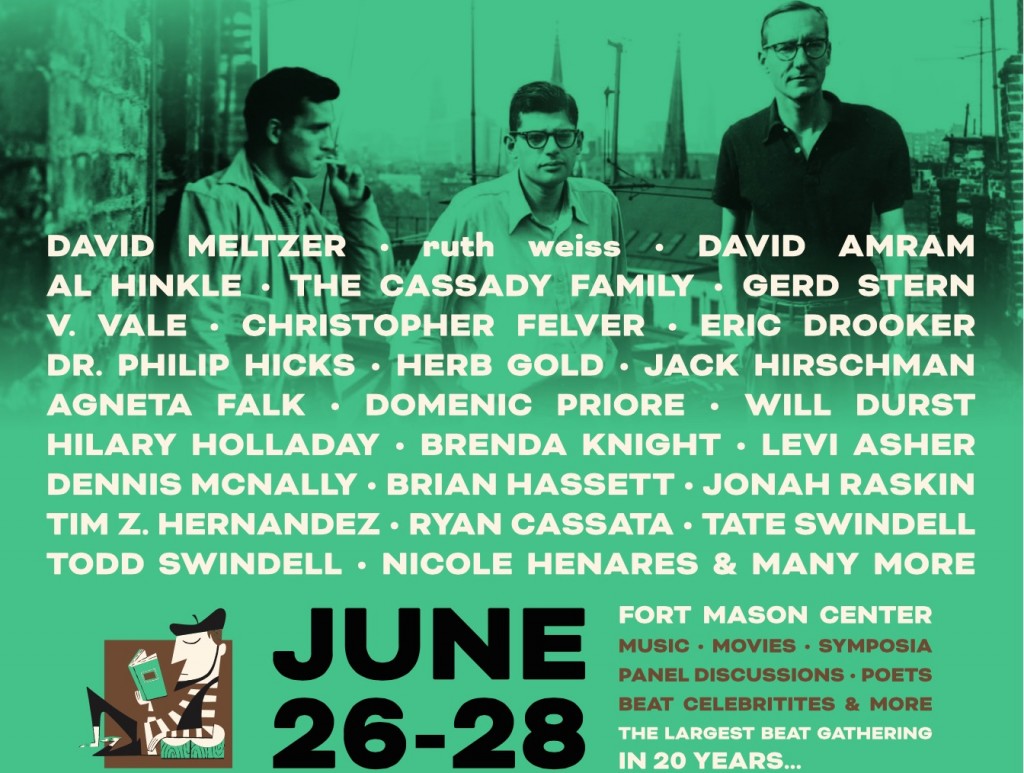
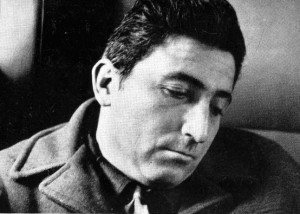
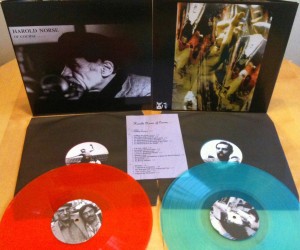 presentation will include a display of rare books and ephemera by both poets along with audio clips and never before screened video. Unrequited Records has released poetry recordings that were originally issued on cassette by Eddie Woods’ Ins & Outs Press, among them a captivating reading by
presentation will include a display of rare books and ephemera by both poets along with audio clips and never before screened video. Unrequited Records has released poetry recordings that were originally issued on cassette by Eddie Woods’ Ins & Outs Press, among them a captivating reading by 